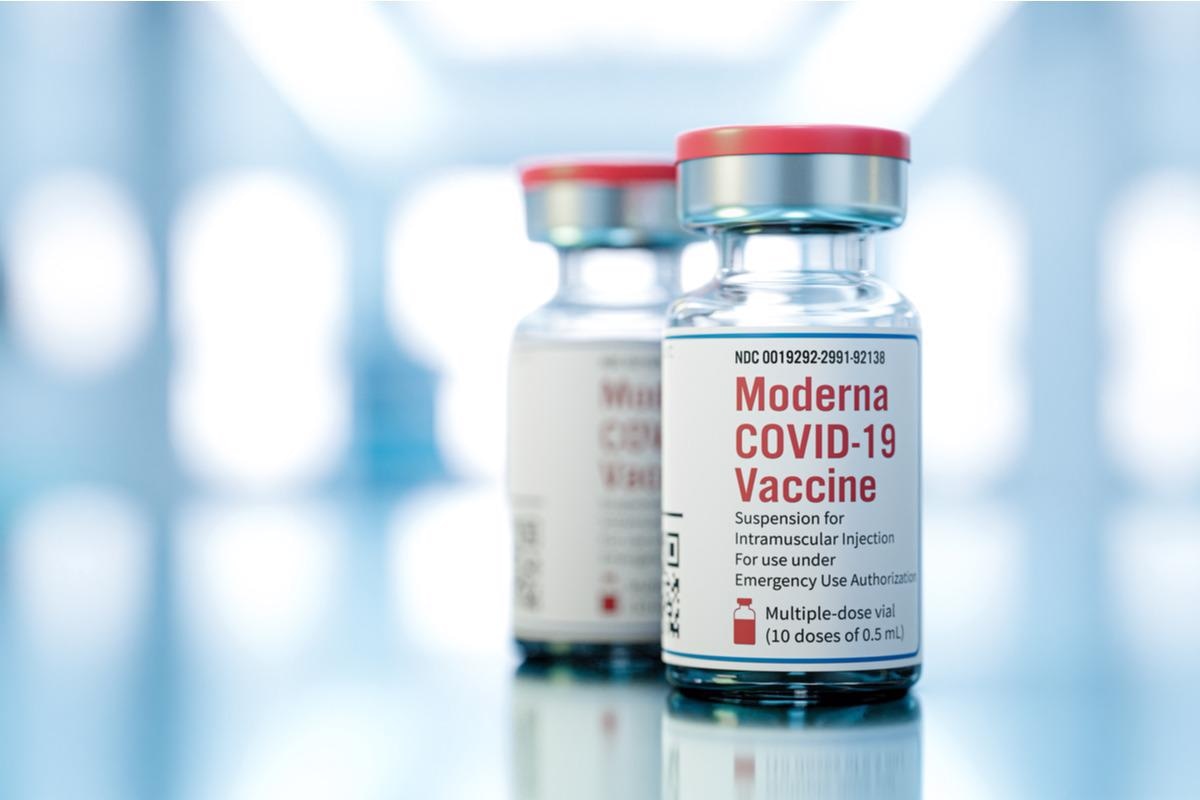The Moderna mRNA-1273 vaccine was one of the first created against infection by severe acute respiratory syndrome coronavirus 2 (SARS-CoV-2). The approval of this vaccine, alongside several others, was instrumental in allowing governments worldwide to begin to dismantle the restrictions designed to curb coronavirus disease 2019 (COVID-19) transmission.
 Study: Immune correlates analysis of the mRNA-1273 COVID-19 vaccine efficacy clinical trial. Image Credit: guteksk7/Shutterstock
Study: Immune correlates analysis of the mRNA-1273 COVID-19 vaccine efficacy clinical trial. Image Credit: guteksk7/Shutterstock
mRNA vaccines are a relatively recent development in vaccination: rather than introducing a protein, or a matrix presenting proteins in a pattern and allowing the immune system to recognize and begin to produce antibodies against them, mRNA vaccines present a strand of mRNA to the body, relying on the hosts own cells to produce the protein. In the case of SARS-CoV-2, this is normally the receptor-binding domain (RBD) on the spike protein, as this is essential for viral cell entry.
In a study published in Science, researchers from Fred Hutchinson Cancer Research Center have been investigating the vaccine efficacy of the mRNA-1273 vaccine.
The study
The researchers examined the results from 1,010 fully vaccinated individuals and 137 who were given a placebo. Thirty-four percent of participants were 65 or over, 40% were at risk of more severe COVID-19, and the participants were roughly equally divided along demographic boundaries. Antibody markers were analyzed at least seven days after day 29 and day 58, with an average follow-up time of 116 days post day 29 and 88 days post day 57.
On day 29, nearly every individual showed a positive response for anti-spike and anti-RBD IgGs. ID50 and ID80 titers were detectable in 82% and 64% of vaccine recipients. On day 57, almost 100% of vaccinated individuals showed a positive antibody response for all four markers. Each marker was moderately correlated between the two time points. As expected, the spike IgG and RBD iGG markers were tightly correlated, as were the ID50 and ID80 markers. Each binding antibody marker was correlated with each neutralization marker at each time point. In all markers, the mean distribution was lower in vaccine breakthrough cases than in non-cases.
The scientists used Cox model-based covariate-adjusted COVID-19 incidence for subgroups of vaccines recipients to analyze the COVID-19 risk following vaccination. The multiplicity-adjusted p-values indicate a significantly lower risk for vaccine recipients with higher antibody marker levels, with similar results across all subgroups. Markers at both day 29 and day 57 both showed significant inverse correlates of risk.
The cumulative incidence of COVID-19 in vaccinated individuals across the entire study was 0.0033. The shape of this cumulative incidence tracked the reverse cumulative distribution function of the ID50 titer, which shows the incremental change in risk associated with the change in marker levels. Specifically, when ID50 was undetectable at day 57, vaccine efficacy was at 51%. Day 57 values of 10, 100, and 1,000 IU50/mL were associated with a vaccine efficacy of 78%, 91%, and 96%, respectively. This meant a 5.5 fold increase in vaccine risk reduction from 10 to 1000 IU50/mL. Vaccine efficacy estimates increased at similar levels for day 29 results. Conclusions for binding antibodies were similar to those for neutralizing antibodies.
The researchers also performed a sensitivity analysis, assuming the existence of an unmeasured confounder associated with the antibody marker and COVID-19 outcome to make the vaccine efficacy by marker curve flatter. This analysis indicates that vaccine efficacy estimates still increased with day 57 ID50 titer.
A similar pattern of results was seen across all neutralizing antibodies. When unmeasured confounding was assumed, estimated vaccine efficacy appeared to vary a very small amount with each binding antibody marker. Sensitivity analysis based on E-values of the vaccine recipient antibody tertile subgroups supported the idea that vaccine efficacy would still have increased with antibody marker level even if confounders had been present.
Conclusion
The researchers highlight that all evaluated binding and neutralizing antibody markers are strongly inversely correlated with the risk of infection by SARS-CoV-2. As expected, they are also directly correlated with vaccine efficacy. Based on any antibody marker, COVID-19 risk was roughly ten times lower for vaccine recipients that received the top 10% of values for antibodies compared to those in which no antibodies were detected. This risk decreases incrementally rather than cutting sharply at a particular threshold.
These results support the idea that neutralization titer can be used as a surrogate marker for mRNA-1273 vaccination against COVID-19. This information could be invaluable for researchers studying the vaccine efficacy in specific individuals. It could also help inform immunocompromised and the elderly and help confirm how dangerous infection remains for at-risk individuals post-vaccination.